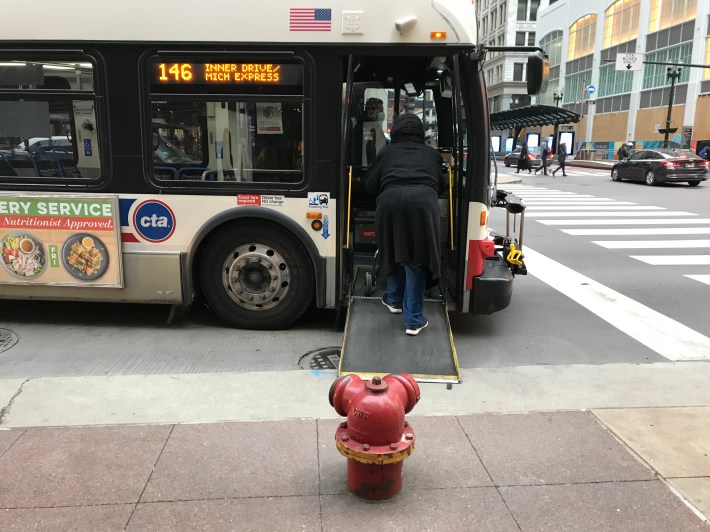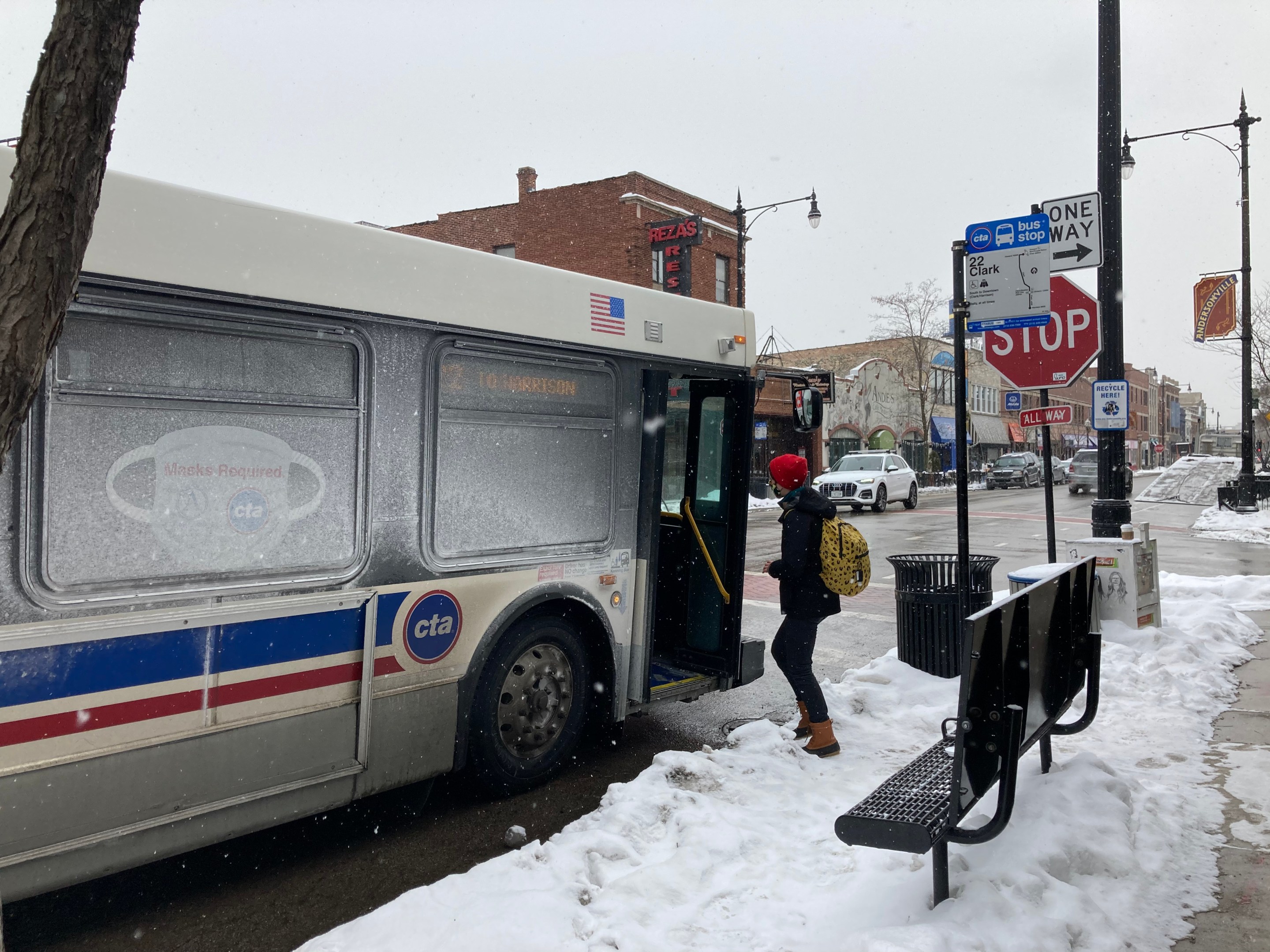Regardless of the energy source, electrifying a big-city bus fleet is an effective public health strategy, because it reduces carbon emissions within dense populations centers. The CTA isn't doing that, or even switching to hybrid gas-electric, anytime in the near future. But today the agency announced that its board signed off on the purchase of up to 600 new, so-called "clean-diesel" buses, which the CTA says will reduce maintenance costs and offer new safety features and perks for passengers.
Arguably, "clean diesel" is an oxymoron, and the CTA shouldn't be buying any more of these kind of polluting buses, but instead turning to more sustainable options. Notably, the agency's announcement of the purchase makes no mention of these vehicles being more fuel efficient, or producing fewer emissions, than their current vehicles.
The contract the CTA is entering with Nova Bus allows for the purchase of at least 100 buses and options to but another 500, which will allow the agency to gradually retire the oldest buses in its fleet. Nova Bus, a division of Prevost Car, Inc. was awarded today’s contract following a competitive bid process. According to the terms of the deal, the CTA will purchase a minimum of 100 buses at an amount not to exceed $49.5 million total, with five funded options to purchase up to 500 additional buses, plus $36.7 million in additional parts, tools and add-ons. The overall contract value is not to exceed $334 million and funded with a combination of mostly federal funds and CTA capital funds.
“Over the next two years, nearly 70 percent of our bus fleet will be beyond its useful life, resulting in reduced service reliability and increased operational and maintenance costs,” said CTA president Dorval R. Carter, Jr. in a statement. “Today’s purchase will help ensure CTA can continue to provide safe, reliable service as we prepare to transition to an all-electric bus fleet over the next 20 years.”
The buses purchased today will replace the 100 remaining Nova 6400-series, which were bought between 2000 and 2002, and are the oldest buses in CTA’s fleet, with each averaging more than 584,000 miles, according to the CTA. Future contract options, if exercised, would allow CTA to begin retiring the oldest of the 40 foot, New Flyer 1000-series buses that were bought starting in 2006.
The new 40-foot Nova buses are similar to those added to the fleet in 2018, but the CTA says they offer new safety features and benefits for riders, although they will also provide a new annoyance in the form of on-screen advertising.
- Overhead service information screens that display real-time route information, stop requests, advertisement, and passenger updates.
- Pedestrian Detection System, which provides both the operator and pedestrian alerts (visual strobe/audible alarm) when objects are in the danger zones.
- Updated high-definition security cameras, with a minimum of 10 interior and exterior cameras
- New and "improved" vinyl seat covers manufactured by Chicago-based Freedman Seating Company
The CTA says the buses also include improvements to the wheelchair ramps at the front door, including a larger surface area and a reduced slope, for a more user-friendly experience.

The CTA expects the first prototypes will arrive this fall, with production beginning in early 2022. With an average useful life of 12-14 years, the buses purchased today will need to be retired several years before the CTA’s target of transitioning to an all-electric fleet by 2040.
"The CTA remains fully committed to this transition goal, having already taken multiple steps towards meeting it, including receiving the first six of 20 all-new electric buses that will go into service later this year," the agency promised it today's announcement. The CTA says it's close to completing the action plan for reaching the goal: The Bus Fleet Electrification Feasibility Study. This study, expected to be completed by the end of this year, will evaluate bus and charging technologies, and look at current CTA facilities and the necessary building, electrical, and equipment upgrades needed for full electric-bus operation.




